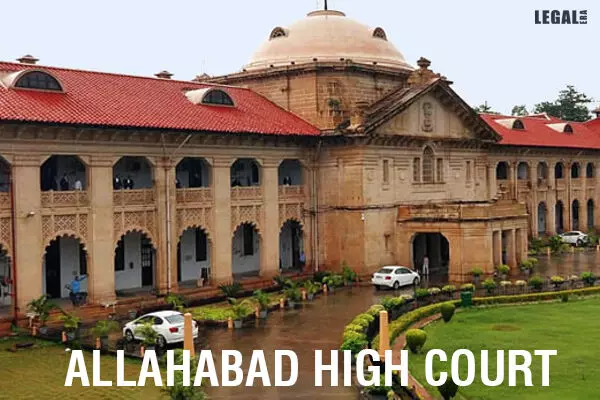- Home
- News
- Articles+
- Aerospace
- Agriculture
- Alternate Dispute Resolution
- Banking and Finance
- Bankruptcy
- Book Review
- Bribery & Corruption
- Commercial Litigation
- Competition Law
- Conference Reports
- Consumer Products
- Contract
- Corporate Governance
- Corporate Law
- Covid-19
- Cryptocurrency
- Cybersecurity
- Data Protection
- Defence
- Digital Economy
- E-commerce
- Employment Law
- Energy and Natural Resources
- Entertainment and Sports Law
- Environmental Law
- FDI
- Food and Beverage
- Health Care
- IBC Diaries
- Insurance Law
- Intellectual Property
- International Law
- Know the Law
- Labour Laws
- Litigation
- Litigation Funding
- Manufacturing
- Mergers & Acquisitions
- NFTs
- Privacy
- Private Equity
- Project Finance
- Real Estate
- Risk and Compliance
- Technology Media and Telecom
- Tributes
- Zoom In
- Take On Board
- In Focus
- Law & Policy and Regulation
- IP & Tech Era
- Viewpoint
- Arbitration & Mediation
- Tax
- Student Corner
- AI
- ESG
- Gaming
- Inclusion & Diversity
- Law Firms
- In-House
- Rankings
- E-Magazine
- Legal Era TV
- Events
- News
- Articles
- Aerospace
- Agriculture
- Alternate Dispute Resolution
- Banking and Finance
- Bankruptcy
- Book Review
- Bribery & Corruption
- Commercial Litigation
- Competition Law
- Conference Reports
- Consumer Products
- Contract
- Corporate Governance
- Corporate Law
- Covid-19
- Cryptocurrency
- Cybersecurity
- Data Protection
- Defence
- Digital Economy
- E-commerce
- Employment Law
- Energy and Natural Resources
- Entertainment and Sports Law
- Environmental Law
- FDI
- Food and Beverage
- Health Care
- IBC Diaries
- Insurance Law
- Intellectual Property
- International Law
- Know the Law
- Labour Laws
- Litigation
- Litigation Funding
- Manufacturing
- Mergers & Acquisitions
- NFTs
- Privacy
- Private Equity
- Project Finance
- Real Estate
- Risk and Compliance
- Technology Media and Telecom
- Tributes
- Zoom In
- Take On Board
- In Focus
- Law & Policy and Regulation
- IP & Tech Era
- Viewpoint
- Arbitration & Mediation
- Tax
- Student Corner
- AI
- ESG
- Gaming
- Inclusion & Diversity
- Law Firms
- In-House
- Rankings
- E-Magazine
- Legal Era TV
- Events
Allahabad High Court: Notice Must Contain the Details About the Foundation of the Case based on Which Action is Necessitated

Allahabad High Court: Notice Must Contain the Details About the Foundation of the Case based on Which Action is Necessitated
The Allahabad High Court has observed that a show cause notice must contain the foundation of the case based on which action is being necessitated.
The division judge’s bench comprising of Justices Siddhartha Varma and Arun Kumar Singh Deshwal observed that in case, the show cause notice is found sufficient, assessee has remedy of filing reply/objections before the concerned authorities.
In the instant matter, the petitioner was issued a show cause notice under Section 74 of the Uttar Pradesh Goods and Services Tax Act, 2017 on grounds that Input Tax Credit was wrongly by the Petitioner based on purchases shown from a bogus firm. Petitioner was required to show cause as to why tax and penalty should not be levied upon him. The counsel for Petitioner contended that the show cause notice was vague and bad in law. It was merely based on the Special Investigation Branch’s report.
Per contra, the Department argued that proceedings were yet to be initiated and this was merely a show cause notice to which the Petitioner has the remedy to file reply/objections. Further, it was argued that proceedings in pursuance of the show cause notice could be initiated only if it ‘appeared’ to the proper officer that tax had not been paid or short paid or erroneously refunded or where Input Tax Credit had been wrongly availed or utilized by reason of fraud or any willful statement or suppression of fact. The writ petition was premature and thus, liable to be dismissed.
While placing reliance on Gorkha Security Services vs. Government (NCT of Delhi) (2014), the Court held that a show cause notice must clearly contain the charges against the person who is being proceeded against in show cause proceedings to fulfil the requirements of principles of natural justice.
The Court observed, “Purpose of the show cause proceeding is meant to give a person proceeded against a reasonable opportunity of making his objection against the proposed charges as indicated therein as observed by the Hon'ble Supreme Court in the case of Khem Chand vs. Union of India AIR 1958.”
The Court observed that the show cause notice was not illegal merely because the Petitioner was only asked to show cause as to why tax and penalty should not be imposed upon him instead seeking reply on merits of the allegations.
The show cause notice issued under Section 74 (1) of the Uttar Pradesh Goods and Services Tax Act, 2017 was sufficient and contained all necessary details and grounds for issuing the same. Hence, it cannot be quashed under Article 226 of the Constitution of India.
Consequently, the Court disposed of the petition and directed the petitioner to submit reply/objections before concerned authorities along with the evidence of the disputed transactions within a period of month.


